For a refresher on his stats, his history, and his brief, early tenure with the organization, click here.
Interestingly, a text out of the blue two nights ago from an NHL hockey operations executive – not one with the Kings – deemed Prokhorkin an “outstanding player.” It’s far from clear what his ceiling might be, and while it should be decent, it’s a folly to list comparables or start assigning point totals for someone who hasn’t played club hockey in North America since 2012. I broadcast five of his Olympic games last year, and more than anything, I was impressed with a skill set that seemed as though it would transfer to the smaller sheet of ice. His third line role with the Olympic Athletes from Russia seemed to be very similar to the type of third-line roles in the NHL, and he showed an aptitude to go hard to the net and win battles along the boards.
But why listen to me? I’m just a blogger. Why not listen to a figure whose relationship with Prokhorkin dates back seven years?
“He competes hard on pucks,” said Assistant General Manager Michael Futa. “If there’s really a chance to score, he goes hard to the net. He goes to the dirty spots and again, one thing that we’ve challenged him on is making sure that he’s in the best physical shape possible coming here. It’s a different league pace-wise, the National Hockey League, and on a team that wants to play fast and hard.
Futa underscored the importance of maintaining a top pace for the entire shift length while referencing that players on Olympic sheets often benefit from “rest portions on the ice.”
“It’s a different pace, there’s a lot of regroups, and there’s a lot more ice [in the KHL],” he continued. “He’s certainly someone that’s never showed any fear to play in tough areas, so it should be an area, but again, his pace has got to be up and his conditioning has got to be top notch.”
Because he was 25 when he signed, his entry-level contract is only for one year. It also includes a European assignment clause, as reported by Renaud Lavoie, in which he could return to Europe should he not make the Kings out of training camp. (While the team declined to share the fine print of the clause, it was confirmed that pursuant to the assignment clause, the Kings would continue to hold Prokhorkin’s rights were he to return to Europe.
This is likely a non-issue, but does refresh several comments from the summer of 2014 in which Prokhorkin cited the lack of guaranteed NHL playing time in Los Angeles as an influence in re-signing with CSKA.
More important than that, here’s a look at the Kings’ newest forward, with special stick taps to Futa for sharing his time during pre-draft meetings in Los Angeles.
Michael Futa, on Nikolai Prokhorkin’s season in the KHL:The strange thing about his team is when he played, he usually played on a top line in Datsyuk’s place, and Datsyuk was in and out of the lineup. The one game I was at he had a hat trick, and they were all good goals, all around the net. Goes to the hard places. It’s been a really different process with him. Obviously when you look back at his rookie picture, it seems like so long ago that we drafted him, and he was here and he played in the American League and he was competing hard. Everybody knows everything that went down – it was unfortunate. He went back and every year I’d see him, it was almost like Groundhog Day. I’d see him at the Karjala Cup and we’d meet downstairs and keep the conversations going with regards to how things were going in Los Angeles. He signed a lot of different contracts to stay over there, and to his credit, I think anytime with the Russian players, it’s a big step for them to come over, but when they’ve been over here and know what the challenge is like and want to come back and take that challenge on again, it speaks volumes. He’s had a very good year point-wise in the KHL. Over there, that league is kind of stacked towards a couple teams, and he’s been on SKA, which is one of the top teams. I think it was probably a big part of his career being on that team that won the gold medal at the Olympics, but he’s got a lot of work. It’s a big step. It’s a big, big step. But again, he’s a guy that’s really competed hard.
Futa, on Prokhorkin’s roles:
He scored a lot of points on the power play over there, and coming into our situation, he’s got to earn himself a spot on the club and he’s got to earn himself coach’s trust. It’s good in a sense that with the new coaching staff coming in he’s going to have a new sheet, you’ve got a coach that’s going to be getting his first view in his opinions on everybody because it’s his first year coaching a bunch of players. I don’t think you can use any kind of excuses that, ‘well, this coach has a predetermined [agenda].’ He’s got to come in and win over the coach’s trust right in training camp, and it’s a new coaching staff, so it should be another good challenge for him. [Reporter: And this is something that should be asked for Todd, but does he have the skills as a player to be someone capable of playing center?] It’s 100% a question for Todd. He’s played primarily center in Russia. He’s got the kind of skill set that he could switch over to the wing, but that’s something for the coach.
Futa, on the evolution of his relationship with Prokhorkin over the better part of the last decade:
Well, I certainly have seen him grow up from year-to-year. But it’s a decision that he had to make. I think recruiting, it’s a different thing with a college recruit who has a bunch of different options. We drafted him, and he’s our property, so that was his option. The big decision, it can’t be about a financial decision. It’s got to be a decision that you want to come in, you want to compete for a job, and this is the league you want to play in, and the Russian players, they’re always going to have that option of going back to the KHL where there might be more money or a lifestyle that they’re more comfortable with. For me, the most pride I took in the stance that he took, he’s worked hard on his English. Blakey and I Facetimed him – the kid, he’s someone you can sit across from and speak English with, which is really good because coaches at the National Hockey League level don’t want interpreters. They want to be able to communicate, and you understand that. But he obviously had a team that really wanted him to sign a contract to stay there this year, and I think it affected his opportunity on nights. There were nights he was probably sat out because he wasn’t committed to staying there long-term, and I think for any athlete to make that decision and stick to their guns because this is what they want to try and this is where they want to play, I think you’ve got to give them a lot of credit for that. Then, it’s got to be tough – he was a healthy scratch the game before he had the hat trick.
Futa, on any prior comments or assurances that Prokhorkin had advocated for:
For the most part, European players are comfortable, and it’s their mindset that if they can play in the National Hockey League and they feel they’re ready to play in the National Hockey League, then that’s when they want to come. It’s not just Russian players alone. You see a lot of Swedish players and Finnish players that find it a lot more comfortable playing in their pro league, but it’s an organizational decision. You’ve got to come, you’ve got to compete, you’ve got to make the hockey team, and that’s why you have a minor league organization for players that aren’t there yet, and that’s something that the organization decides when a team comes to training camp.
–Lead photo via Bruce Bennett/Getty Images

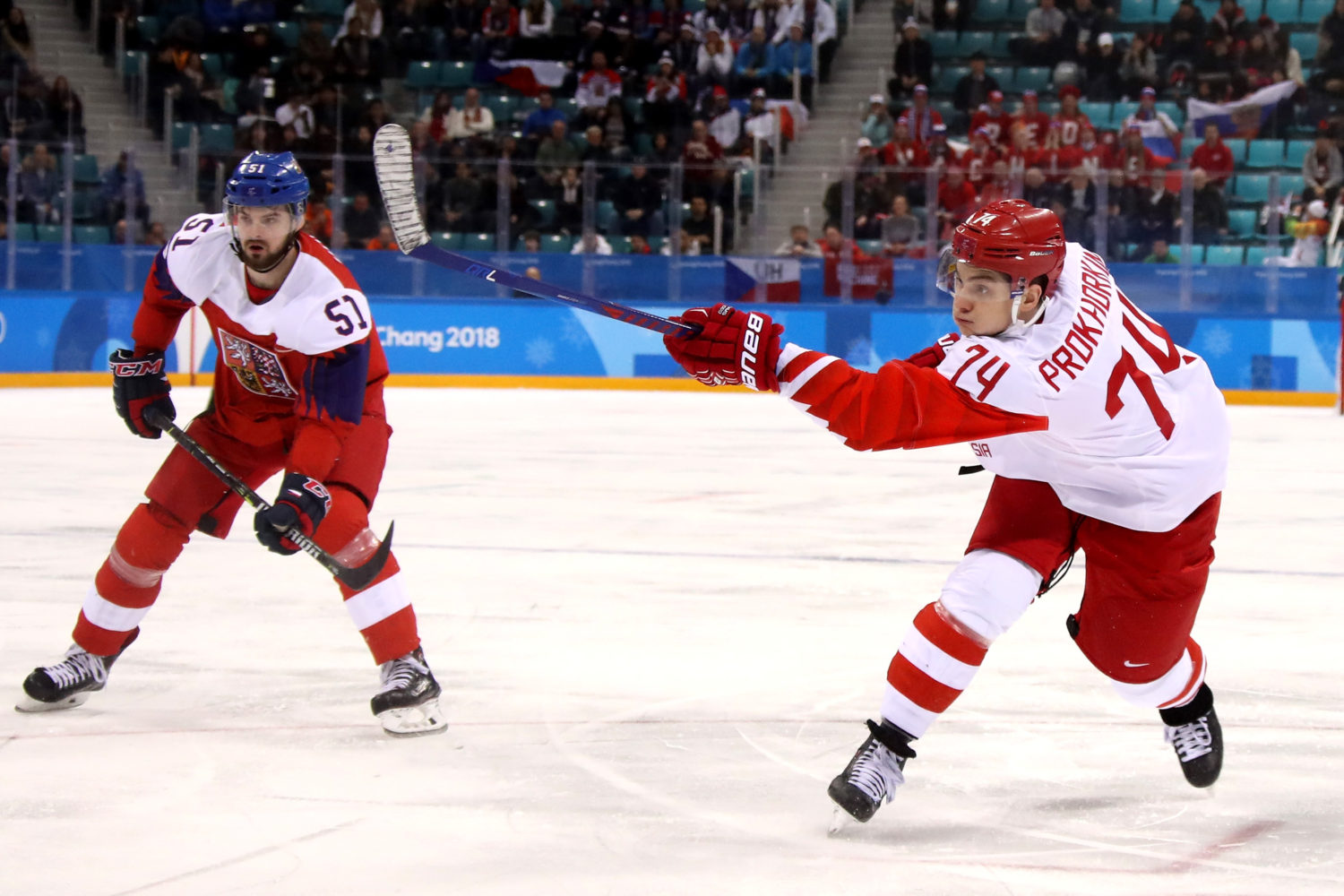
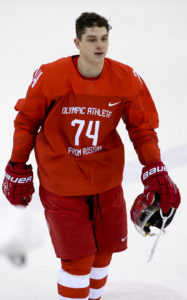
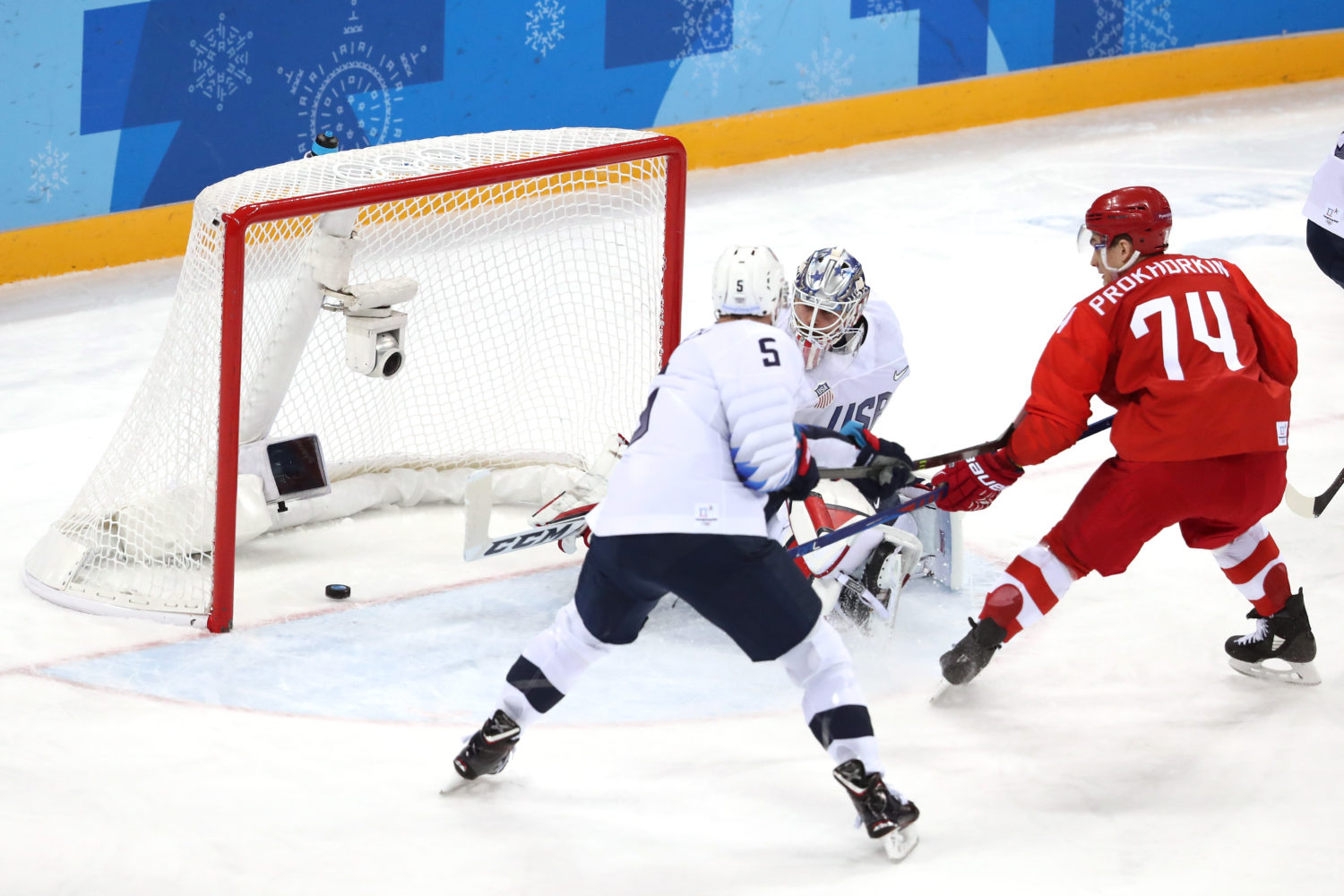
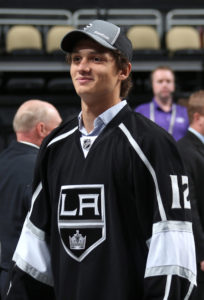
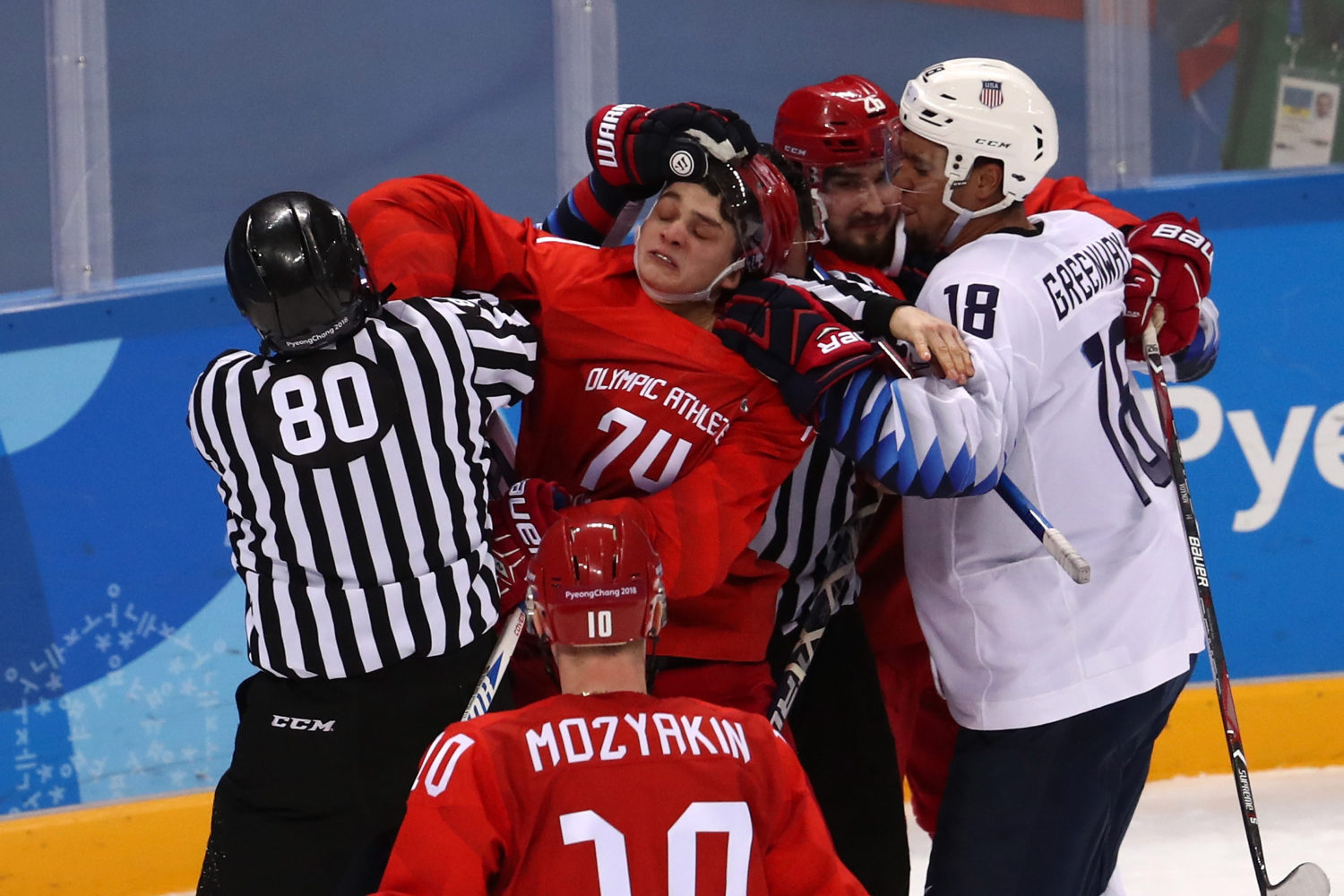
Rules for Blog Commenting
Repeated violations of the blog rules will result in site bans, commensurate with the nature and number of offenses.
Please flag any comments that violate the site rules for moderation. For immediate problems regarding problematic posts, please email zdooley@lakings.com.